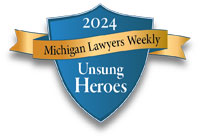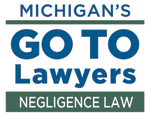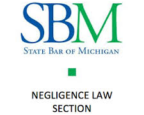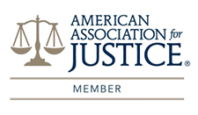
The Christensen Law team knows what it means to lose a loved one. Losing a loved one is a devastating experience no matter the circumstances, but if someone’s careless or negliegnt actions caused the loss, it can feel especially painful. It’s not only the sudden loss, but also the knowledge that this passing could have been avoided.
A wrongful death suit can help hold negligent parties responsible for what happened to your loved one, and the compensation from such a case can help you focus on healing instead of worrying about how you’re going to cover financial losses. Christensen Law has fought and won for wrongful death victims in Detroit since 1991, and we want to fight for you.
If you’ve lost a family member due to someone else’s negligent or reckless actions, now’s the time to speak with a Detroit wrongful death lawyer. Call Christensen Law today for a free consultation, or visit our contact page.
Potential Recoverable Damages

One of our firm’s main tenants is that we listen to each and every client who comes through our doors. No case requires us to listen more than a wrongful death case. We need to know exactly who your loved one was, what they brought to your life, and what you have lost because of their passing.
Part of our roles in a wrongful death case is identifying all the losses we can pursue from the other party. Your compensation include economic and non-ecoomic losses alike. Damages you can receive from a wrongful death suit include:
- Any medical expenses incurred prior to the person’s death
- Funeral and burial expenses
- Lost income, including any future income the deceased would have earned were they still alive
- Pain and suffering the deceased person experienced prior to their death
- Loss of care and companionship resulting from the lost relationships when the person died
Our attorneys will explain everything you need to know about seeking and receiving compensation related to a wrongful death. Members of our firm are no strangers to loss, and we recognize that you may be in unfamiliar and trying circumstances. Our firm will provide some certainty and relief for you and your loved ones.
Why Choose Us When Hiring a Lawyer?
Christensen Law will handle your case as if our own loved one has passed away. We will fight to hold liable parties accountable and help you move forward from the tragic circumstances of your loss.
Specific reasons to hire us for your case are:
- Our determination to get the financial recovery you deserve: Our attorneys have decades of experience, and have never once settled for less than the client deserves. We have secured record-setting settlements and verdicts because we’re always prepared for trial, and we always fight for the financial recovery our client is entitled to.
- Our offices in Detroit: We have an office on Griswold Street in Detroit. This ensures that you will receive in-person, responsive representation. You’ll have your lawyer’s number, but you’ll also know where to find us if you want to meet face to face. We welcome you to our offices any time you want to meet directly with your attorney.
- Our financial resources: Christensen Law will cover the entire cost of your case. We know that nobody plans for the loss of a loved one. Therefore, we only get an attorney’s fee when we get compensation for you.
- Our readiness to start your case today: Our team is ready to get started on your case right away. When we accept your case, we’ll immediately start fighting for the compensation you and your loved ones deserve.
If you’ve recently lost a loved one, you’re most likely in serious emotional pain. You may not feel up to filing a lawsuit, but the three-year clock is ticking. While we take care of your court case, you can focus on healing.
Wrongful death cases aren’t only about the financial recovery. Our goal is to get justice for you, your surviving loved ones, and the decedent. We’ll be the voice of justice for both you and your loved one.
How We Can Help
A wrongful death case is not something you want to attempt without experienced legal counsel. These cases are complicated and involve advanced legal concepts.
Furthermore, the statute of limitations on wrongful death claims means it’s important to file the case quickly without compromising attention to detail. With over 30 years of experience, we know how to navigate the legal process without compromising on a fair settlement.
A lawyer can help you by:
- Explaining the relevant laws involved in your case. You don’t want to lose your chance to recover compensation because you missed a crucial element in establishing your case, so we’ll keep you up to speed and informed about anything that can impact your case.
- Investigating your claim. We have teams of researchers and expert witnesses we can call on to document your case, which can help your case if it goes to trial.
- Assisting with any legal matters involving the deceased’s estate. We are legal advocates who will help you in any way we can, including with estate-related matters. Matters of the estate can be complex and overwhelming, especially after an unexpected death in a tragic accident. We make it our business to help take care of our clients like we would our own family.
- Handling all case-related communications. An insurance company may take anything you say to them and turn it against you. Don’t take that chance. Hire a lawyer to handle any official communication between you and anyone else involved in your case.
- Calculating the full value of your claim. One way insurance companies lowball settlements is to only pay you for some of what you’re owed. We’ll make sure to evaluate the entirety of the damages you may be entitled to, and fight for what you’re owed when the time comes to negotiate a settlement. There are many factors to consider when calculating the value of a loss, but our firm knows exactly what to consider and include when fighting for just compensation.
- Negotiating from a position of strength. We know the tricks that insurance companies and other entities use to entice plaintiffs into accepting lowball offers, and we won’t stand for that. We have years of dealing with insurers who put profits over people, so we’re prepared to protect your family’s best interests.
We take a personal approach to our cases, embracing unconventional solutions while always placing the client’s interests first.
What Qualifies as a Wrongful Death?
A wrongful death is when someone dies due to the wrongful actions, neglect, or fault of another person. Families can sue under many of the same rules that would apply if the deceased had survived their injury or illness to file their own lawsuit.
Wrongful deaths cover a wide range of circumstances, including those that cause injuries and illnesses. Categories of wrongful death cases we handle are:
- Worksite accidents – Employers have a responsibility to keep their workers (and third parties) safe, and that requires a safe workplace. But poor maintenance, a lack of safety inspections, and damaged equipment can all lead to potentially fatal injuries in the workplace. Employers and third parties can be liable for workplace deaths if they’re found to be willfully negligent in their safety efforts. Death benefits may also be available through workers’ compensation even if the employer didn’t do anything wrong.
- Vehicle accidents – Driving while drunk or impaired by other drugs, distracted driving, driving while tired, and other poor decisions can all lead to deadly vehicle accidents. Defective products and dangerous road conditions can also cause fatal motor vehicle accidents.
- Truck accidents – Another common cause of vehicle-related wrongful deaths is drivers being hit by commercial truckers. When fatal truck accidents happen, a driver and their employer may be held liable for negligence. In some cases, other parties are liable for truck accidents.
- Pedestrian or bike accidents – Drivers have a duty to watch out for and avoid pedestrians and bicyclists. If the driver was found negligent at the time of the crash, they can be held liable for damages.
- Slip and falls – Falling on a slippery surface is a potential way to sustain a traumatic brain injury, which can prove fatal. These kinds of accidents can happen in public spaces, inside stores, on the job, in parking lots, on sidewalks, or anywhere where there’s a potential for a slick surface to form. It’s up to property owners to keep visitors, guests, workers, and others safe from slip-and-falls, and failing to do so may mean they’re liable for damages.
- Other premises liability cases – Other cases involving dangerous premises, like trip and falls, falling objects, and electrocutions, may be grounds for legal action.
Who Can File a Wrongful Death Claim?

Michigan law requires the personal representative of the deceased’s estate to file any wrongful death case. Whoever files the case must notify the existing members of the deceased’s family within 30 days.
Once the family members have been notified of a wrongful death case’s filing, those family members, in turn, have 60 days to let the victim’s estate know about any damages they might be entitled to due to the victim’s death. If they do not send notice in time, they may be deemed ineligible to recover any damages should the wrongful death case prove successful.
It’s important to know that, in most cases, only certain family members are eligible to recover compensation from a wrongful death case. The potential beneficiaries of a wrongful death case include:
- The deceased’s spouse
- Their parents and grandparents
- Any brothers or sisters they have
- Any children of the deceased
Our team will provide advice specific to your family and case. We can explain whether you’re eligible to pursue a wrongful death action. If you are, our team will start working on your case as soon as possible.
Statute of Limitations
Michigan generally allows personal representatives to file a wrongful death case within three years of the date of death. While that may seem like a long time, there’s a lot of work that goes into filing a wrongful death action.
If you’re considering filing a lawsuit, it’s important to speak with an attorney as soon as possible. That way you can make sure everything is filed correctly and on time, which gives your case a better chance of success.
How Does a Wrongful Death Lawsuit Work?
Like most personal injury cases, wrongful death cases typically involve proving some type of negligence on the part of the defendant. Proving negligence means showing that not only did the defendant’s actions or failure to act cause someone’s death, but that they also had a responsibility to act. Generally, you also must show how the defendant’s actions or negligence directly led to the victim’s death. Lastly, you also must show resulting damages.
One type of wrongful death suit that can be especially difficult to prove is medical negligence. That’s because you must show how the doctor or hospital’s actions fell below what’s known as the “medical standard of care.” To meet the medical standard of care, your doctor’s actions must be in line with what another doctor with the same training and experience would do if they were presented with a similar case. If the doctor’s actions do not meet this standard, they may be considered negligent and, therefore, liable for damages.
Whatever the nature of a case, you can rely on our lawyers to bring our experience, knowledge, and resources to the fight for your financial recovery.
Talk to an Attorney Today
Legal action is likely the last thing on your mind while you’re grieving, but it’s important to weigh all your options if you believe your loved one was the victim.
A wrongful death case can hold liable parties responsible for their actions. Our team has spent years fighting these battles and recovered tens of millions of dollars for our clients, and we would be honored to work with you and help your family in your fight for compensation.
Call Christensen Law today for your free consultation.
Our Attorneys Can Answer Your FAQs
How a Lawyer Can Help
A wrongful death claim is not something you want to attempt without experienced legal counsel. These cases are complicated and turn on nuanced legal concepts. Furthermore, the statute of limitations on wrongful death claims means it’s important to file the case quickly while still ensuring everything is in order.
Here are some of the ways we can help with your wrongful death claim:
- If you’ve recently lost a loved one, you’re most likely in serious emotional pain. You may not feel up to filing a lawsuit, but the three-year clock is ticking. While we take care of your court case, you can focus on healing.
- Wrongful death claims are a core area of practice for our firm, so we know the relevant laws and rules surrounding these cases. You don’t want to lose your claim because you missed some crucial element in establishing your case.
- We can investigate your claim for you. We have teams of researchers and expert witnesses we can call on to document your case, which makes it more likely that you’ll prevail should the case go to trial.
- We can assist with any legal matters involving the deceased’s estate.
- We can handle any communication between you and the defendant, their insurance company, etc. Speaking to an insurance company can give them an advantage because they can take anything you say to them and turn it against you. Don’t take that chance. Hire a lawyer to handle any official communication between you and anyone else involved in your claim.
- We can calculate the full value of your claim. One way insurance companies lowball settlements is to only pay you for some of what you’re owed. We’ll make sure to evaluate the entirety of whatever damages you may be entitled to, and fight for what you’re owed when the time comes to negotiate a settlement.
- We can negotiate from a position of strength. We know the tricks that insurance companies and other entities use to entice plaintiffs into accepting lowball offers. We won’t stand for that. We’re prepared to aggressively fight for you to get the maximum damages possible.
Statute of Limitations in Michigan
Michigan allows for wrongful death claims to be filed within three years of the date of death. While that may seem like a long time, there’s a lot of work that goes into filing a wrongful death action.
If you’re considering filing a claim, it’s important to speak with an attorney as soon as possible. That way you can make sure everything is filed correctly and on time, which gives your case a better chance of success.
How Does a Wrongful Death Lawsuit Work?
Like most claims, wrongful death claims typically involve proving some type of negligence on the part of the defendant. Proving negligence means showing that not only did the defendant’s actions or failure to act cause someone’s death, but that they also had a responsibility to act. Generally, you also have to show how the defendant’s actions or negligence directly led to the victim’s death. Lastly, you also have to show measurable damages.
One type of wrongful death suit that can be especially difficult to prove is medical malpractice. That’s because you have to show how the doctor or hospital’s actions fell below what’s known as the “medical standard of care.” To meet the medical standard of care, your doctor’s actions must be in line with what another doctor with the same training and experience would do if they were presented with a similar case. If the doctor’s actions do not meet this standard, they may be considered negligence and, therefore, liable for damages.
How much does a lawyer cost?
Most lawyers typically charge no upfront fees and works on a contingency basis. At Christensen Law, you only pay if we win your case, with fees taken as a percentage of the final settlement or award. This ensures families can pursue justice without added financial stress.





























